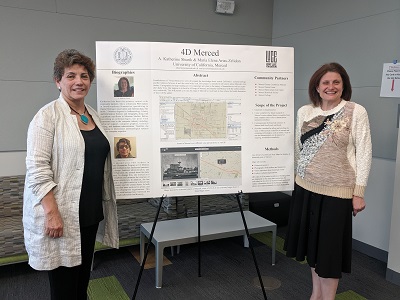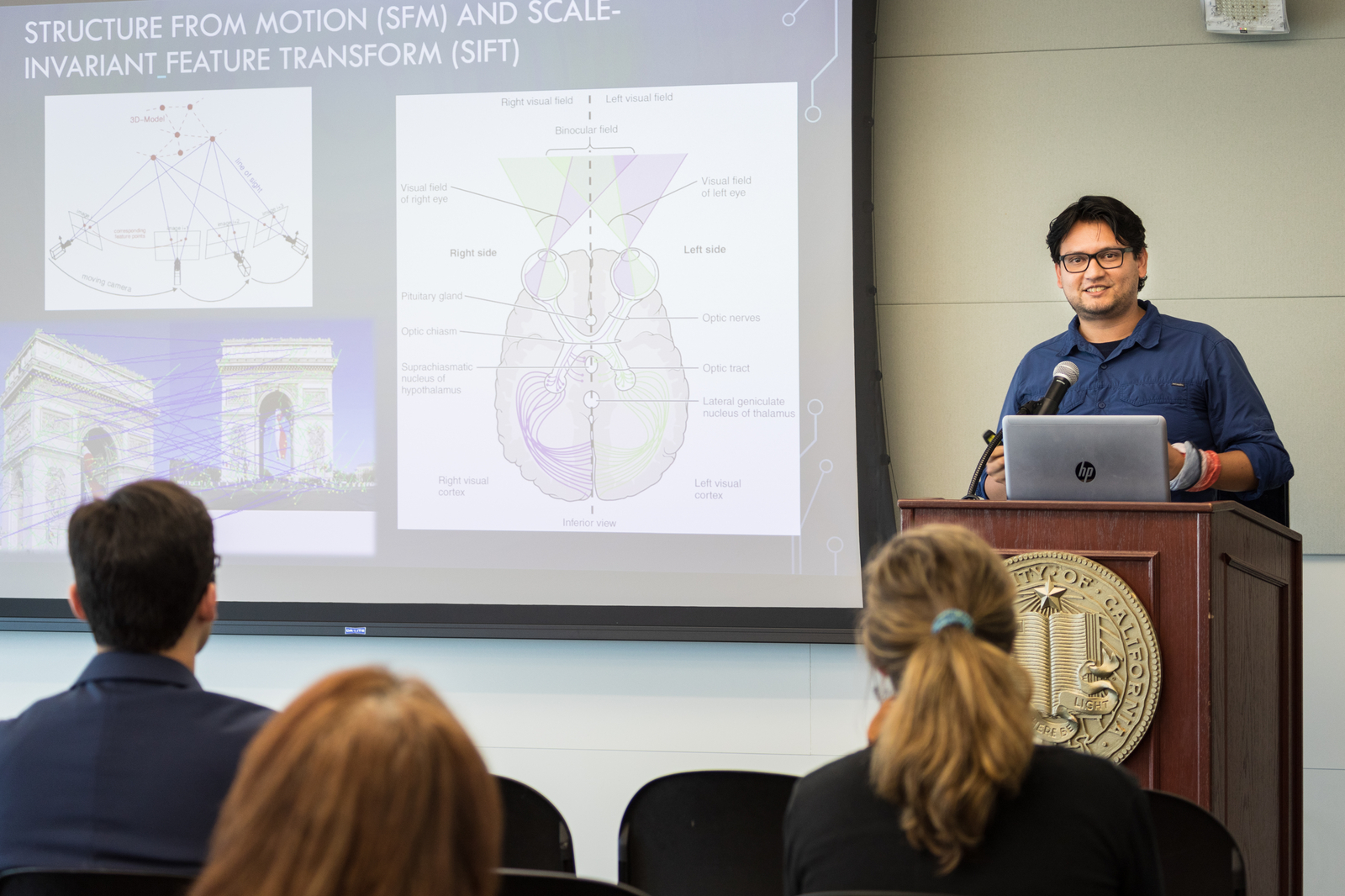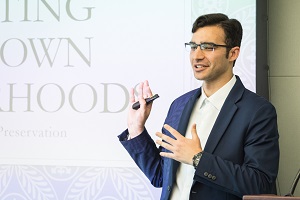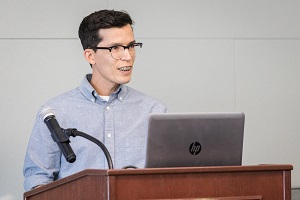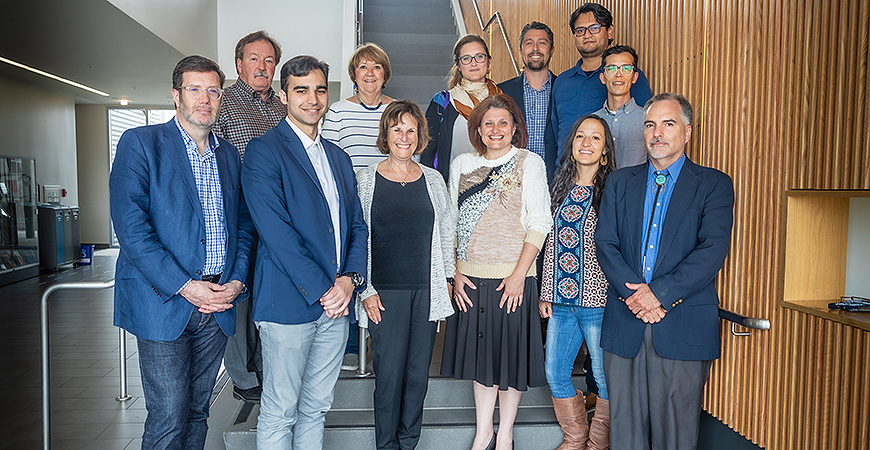
Since his undergraduate days in Environmental Studies at Humboldt State University, Ivan Soto has aspired to produce research with a positive impact on the public — not just to benefit the academic community.
As a doctoral student in the Interdisciplinary Humanities at UC Merced, Soto is doing just that by producing humanities data that could influence and inform future water board decision-makers to understand the need for systemic change in California’s water monitoring for human health. His research examines the power dynamics of infrastructure and water politics through an environmental history of southernmost California’s Imperial Valley along the U.S.-Mexico borderlands.
“Water is an important issue in California. It has been, and it continues to be,” said Soto, who was born in Merced and raised in California’s Imperial Valley, two areas he hopes can benefit from his research.
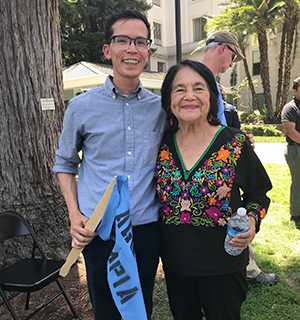
Soto is one of eight UC Merced humanities graduate students participating in the collaborative project funded by a grant from the Henry Luce Foundation entitled “Building Research Partnerships in the San Joaquin Valley: Community Engaged Research and Graduate Mentorship in the Interdisciplinary Humanities.” The participants collaborate with community partners on projects that illustrate how humanities research can affect the local, regional and national dialogues on key issues.
“The character of the university; its relative smallness within the UC system; its location in a part of California that is not well-served by the UC system; its close connection to the city of Merced and community organizations — all of that creates a really interesting environment within which to pursue a project like this,” Henry Luce Foundation Vice President Sean Buffington said. “We’re very excited about the initiative and its potential as a model for other humanities doctoral programs.”
Beginning last fall, the Luce fellows studied the principles and best practices of community-engaged scholarship in an Interdisciplinary Humanities graduate course (IH 206). It’s an approach to research that mentor and world heritage Professor Nicola Lercari said is based on mutual benefit to community and academic collaborators.
“Our graduate students and community partners designed and advanced four community-engaged research projects that provide great visibility to the university in our region of service through applied-research projects developed with and for the local community,” Lercari said. “These projects explored a broad spectrum of methods and practical approaches to community-engaged scholarship and digital humanities, including archive research, digital data management and curation and public dissemination.”
The character of the university; its relative smallness within the UC system; its location in a part of California that is not well-served by the UC system; its close connection to the city of Merced and community organizations — all of that creates a really interesting environment within which to pursue a project like this.
The Luce fellows are working on digital-humanities-focused projects with community organizations as well as experts from the UC Merced Library that culminates at the end of the summer.
In addition to Soto’s Water Governance and Power project, there are three other Luce research projects (learn more by selecting a photo below):
While Soto’s dissertation research examines the power dynamics of water politics and environmental history along the U.S.-Mexico borderlands in the Imperial Valley, his Luce project focuses on the current state of water-related special districts in four northern San Joaquin Valley counties — Merced, Madera, Stanislaus and San Joaquin.
Soto’s faculty mentor, Professor and Principal Investigator for UC Merced’s Luce fellowships Mario Sifuentez, has played a crucial part, connecting him with the Community Water Center, a nonprofit environmental justice organization. Sifuentz has also helped Soto manage the project’s objectives to contextualize water governance and help shift representation in water-related special district boards to adequately represent rural, underrepresented communities of color — those most impacted by California’s drinking water crisis.
“This project has helped me plan and visualize the impact and contribution of my work to both academic and non-academic communities,” Soto said. “The issues we are interested in are rooted in questions about race, ethnicity, class and place.”
The information produced will be shared in the public dissemination phase of the project and will serve as a resource to address issues in local water governance. Soto is hopeful it can be a model for communities outside of California.
This October, Soto will present his project findings and facilitate a workshop titled “Beyond the Academy: Community Engaged Scholarship in Policy, Justice, and Graduate Education,” at The University of New Mexico’s Imagining America: Artists and Scholars in Public Life’s 20th Anniversary National Gathering in Albuquerque.
The second cohort of Luce fellows starts this fall under the guidance of anthropology Professor Robin DeLugan. The course and projects will follow a new theme and methodological approach.
“Developing these projects has exposed our students to different problematics and challenges compared to their coursework,” Lercari said. “At the end of the program, they will be better positioned to continue their careers outside the traditional academic path and seek jobs in non-governmental organizations, museums, libraries, archives, and many other places.”
Brenda Ortiz

Senior Public Information Representative
Office: (209) 228-4203
Mobile: (209) 628-8263




